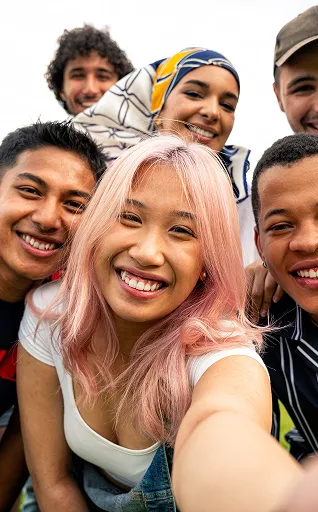
We offer a safe space for teens from all diverse backgrounds to stabilize, find sobriety and improve their quality of life. Our center is located in Winter Springs, Florida with dedicated staff onsite 24/7 to provide structured supervision.
The facility includes a high-quality computer lab for teens to focus on their academics during their stay, a recreational room for game nights, and a basketball court to stay active. Our compassionate team embodies the commitment to making a positive impact in the lives of the teens we serve.
Over-the-counter (OTC) drugs are medications that can be purchased without a prescription, either at a pharmacy or grocery store. OTCs are generally safe when used as recommended. They are less potent than other substances, but if misused, they can still lead to health consequences and addiction.
According to the CDC, rates of OTC drug abuse are actually higher among younger teens (4.4% of 8th graders vs 2.4% of 12th graders). Younger teens may abuse over-the-counter drugs due to curiosity, experimentation, and their easy availability. The most common OTC drug abuse by teens includes cough or cold medicines that often contain dextromethorphan (DXM). DXM in particular is linked to a significant number of teenage ER visits for drug poisoning. Teens may use DXM and a combination of other drugs, such as antihistamines, to create “lean”. This uses either prescription (codeine) or OTC cough syrup (DXM) to provide teens with intense, euphoric effects.
OTC drug abuse can cause chronic health problems such as memory loss, damage to the heart, and kidney failure. They can also increase the risk of mental health problems such as depression, anxiety, inability to focus, paranoia, delusions, or hallucinations.
At Lotus Behavioral Health, we understand the challenges of OTC abuse and help educate parents on effective prevention strategies. Throughout our treatment programs, teens have access to evidence-based therapies and therapeutic activities to reduce the triggers contributing to their substance abuse. Some of the therapies offered for teens in OTC abuse treatment include:



Our safe and structured 5 to 12-week residential program offers 24/7 care, a blend of evidence-based therapies, and medication management to treat hallucinogen abuse and co-occurring mental health disorders in teens.
Explore Program

This intensive 7-day program builds on the skills learned in residential treatment. Our PHP includes room and board, and teens will continue to live at the facility for the remainder of their treatment.
Explore Program

Our IOP provides a less-intense treatment approach meeting 3-4 days a week, allowing teens to live at home, while still receiving intense treatment.
Explore Program

Virtual and in-person outpatient services allow teens and their families to participate in treatment while still living at home and staying involved in their day-to-day activities.
Explore Program
We understand that teenage addiction is often driven by underlying mental health problems and trauma. When your teen first arrives for treatment, they will be given a comprehensive substance abuse evaluation and mental health assessment to identify what treatment is most appropriate for their needs.
Lotus Behavioral Health recognizes the importance of family in the recovery journey for teens. We encourage parents to stay involved in their teen's treatment process for an increased success rate. We focus on equipping teens with the tools to repair damaged relationships, manage conflict, and form connections.
During treatment, your teen will participate in intensive individual and group therapies such as CBT, DBT, motivational interviewing, and medication management. Our licensed therapists will help teens modify negative thinking patterns that drive their drinking, set treatment goals, and develop positive coping strategies.
Our team understands the sensitive nature of teen development. This period is characterized by self-exploration around culture, race, sexual orientation, and gender identity. Our staff is trained in diversity to provide judgment-free support so teens can explore these topics, which can greatly impact their mental health and recovery journey.


Lotus Behavioral Health holds both treatment and academics as equally important. We understand many teens who enter treatment fall behind in school, creating extra challenges when they transition back to their community. We partner with local schools to optimize success for teens in our Residential and PHP programs. Teens in our program spend time in the classroom each day while continuing to make progress in their recovery.
We focus on relapse prevention planning by helping teens build a strong support system in their com munity. This may include involving family or friends in the recovery process, ensuring teens meet academic requirements with educational support, and connecting them to a peer recovery network.
.webp)
Yes, we accept most major insurance providers, including Cigna, Aetna, and BlueCross Blue Shield. Speak with one of our admissions members to verify insurance and find the best treatment plan for your teen.
Teens are at a higher risk of abusing OTC drugs due to their easy accessibility for purchase and availability in the home. Some of the most commonly abused OTC drugs include cold medicines, cough syrups, allergy pills, and sleep aids.
Yes! At Lotus, we believe having a strong support system and family involved in the treatment process can increase recovery success rates for teens.
We're ready to answer your questions and help guide your teen on the path of recovery.
